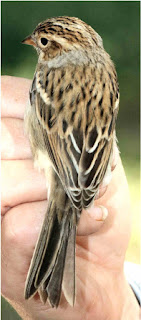Biology - 100 million unnamed species exist on the planet.
We know that many species on the planet are dying out. Apparently, we have nothing to fear. Though 2 million species have been named, a massive 100 million more are out there. This does not include currently unnamed bacteria.
Each living creature is placed in a species category because it has independent evolutionary lineage. A horse and donkey for example are different species, but they both have a common ancestor. If they do breed their offspring are infertile. There is debate about this with claims that some mules have had young. This gets into the argument about Neanderthals breeding with humans when they have a different number of chromosomes. Interbreeding should not be possible.
The problem with naming is that animals from two species can look virtually identical. The African elephant is a misnomer. There are actually two species: the bush elephant and the forest elephant. One is genetically distinct from the other.
Using clear categories will never be an adequate way to name species. Like human gene pools that are blurred across the world it seems that animals are also on a graduated scale, looking alike while being genetically different.
Adventure AustraliaFunny Animal Photos
Funny Weird Things
Articles News Reviews
●
. . . . . . . . . . . . . . . . . . . . . . . . . . . . . . . . . .
BIRDS LOOK ALIKE
species, animal, elephants, african, biology, evolution, bacteria, breed, donkey, horse, mule, offspring, infertile, chromosomes, articles news politics economics society anthropology historiography history sociology people nations country asia europe africa u.s. south america central Mediterranean eastern western interesting funny technology adventure australia blog australian blog free news sex
BIRDS LOOK ALIKE
species, animal, elephants, african, biology, evolution, bacteria, breed, donkey, horse, mule, offspring, infertile, chromosomes, articles news politics economics society anthropology historiography history sociology people nations country asia europe africa u.s. south america central Mediterranean eastern western interesting funny technology adventure australia blog australian blog free news sex





